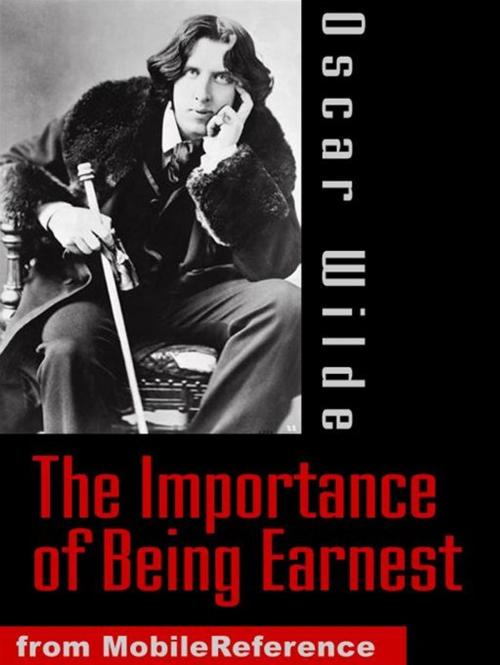The Importance Of Being Earnest (Mobi Classics)
Nonfiction, Entertainment, Theatre, Playwriting, Performing Arts, Fiction & Literature, Classics| Author: | Oscar Wilde | ISBN: | 9781605013251 |
| Publisher: | MobileReference | Publication: | January 1, 2010 |
| Imprint: | MobileReference | Language: | English |
| Author: | Oscar Wilde |
| ISBN: | 9781605013251 |
| Publisher: | MobileReference |
| Publication: | January 1, 2010 |
| Imprint: | MobileReference |
| Language: | English |
The Importance of Being Earnest is a play by Oscar Wilde, a comedy of manners on the seriousness of society in either three or four acts (depending on edition) inspired by W. S. Gilbert's Engaged. It was first performed for the public on February 14, 1895 at the St. James's Theatre in London. Set in England during the late Victorian era, its primary source of humour is based on characters maintaining fictitious identities to allow them to escape from social obligations.Wilde's plays had reached a pinnacle of success, and anything new from the playwright was eagerly awaited. The press were always hungry for details and would pursue stories about new plots and characters with a vengeance. To combat this Wilde gave the play a working title, Lady Lancing. The use of seaside town names for leading characters, or the locations of their inception, can be recognised in all four of Wilde's society plays (Jack's surname, Worthing, is itself taken from the town where Wilde was staying when he wrote the play). Excerpted from Wikipedia, the free encyclopedia.
The Importance of Being Earnest is a play by Oscar Wilde, a comedy of manners on the seriousness of society in either three or four acts (depending on edition) inspired by W. S. Gilbert's Engaged. It was first performed for the public on February 14, 1895 at the St. James's Theatre in London. Set in England during the late Victorian era, its primary source of humour is based on characters maintaining fictitious identities to allow them to escape from social obligations.Wilde's plays had reached a pinnacle of success, and anything new from the playwright was eagerly awaited. The press were always hungry for details and would pursue stories about new plots and characters with a vengeance. To combat this Wilde gave the play a working title, Lady Lancing. The use of seaside town names for leading characters, or the locations of their inception, can be recognised in all four of Wilde's society plays (Jack's surname, Worthing, is itself taken from the town where Wilde was staying when he wrote the play). Excerpted from Wikipedia, the free encyclopedia.















